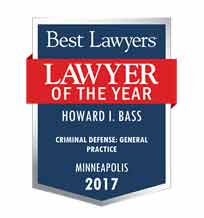Minnesota Criminal Defense FAQs
Whether you are facing felony or misdemeanor charges, there’s nothing more overwhelming than the unknown. I am Minnesota criminal defense attorney Howard Bass.
For more than 30 years, I have aggressively defended clients facing potentially life-altering charges. I understand the fears you may have. You deserve to know how the criminal justice system works and how I will take every measure possible to defend your rights. Below is a criminal defense FAQ focused on addressing the questions you may have so you are not left with any surprises.
Should I Talk To The Police?
You are not required to speak to the authorities. If you do speak to police officers, however, you are required to tell the truth. Lying to police officers is a serious offense that could lead to additional criminal charges. If you have been accused of a crime, the best response is to say only that you would like to speak to your attorney. You can call me 24 hours a day, seven days a week at 952-466-6718 for a free initial consultation.
What Is The Difference Between Felonies, Gross Misdemeanors, Misdemeanors And Petty Misdemeanors?
The difference between these four classifications is based on the possible penalties a person may suffer if convicted. Under Minnesota law, felonies can carry a punishment of more than one year in prison. Gross misdemeanors are punishable by up to one year in jail and/or a fine of up to $3,000. Misdemeanors are crimes punishable by up to 90 days in jail and/or a fine of up to $1,000. Petty misdemeanors are noncriminal violations that do not result in jail time. These offenses are punishable by a fine up to $300.
What’s The Difference Between A Dui And A Dwi?
DUI means driving under the influence. DWI means driving while intoxicated. These are two different ways to violate Minnesota’s prohibition against impaired driving. A person is guilty of driving under the influence (DUI) if his or her consumption of alcohol-impaired his or her ability to operate a motor vehicle. A person is guilty of driving while intoxicated (DWI) if his or her alcohol concentration is measured at .08 or more, as disclosed by a breath, blood or urine test, within two hours of driving, operating or physically controlling a motor vehicle.
What Should I Do If I Am Arrested For A Crime?
First, do not resist the arrest. Under Minnesota law, you do not have the right to resist an arrest – even an illegal one. Second, do not make any statements to the police. Anything you say can and will be used against you in court. The safest thing to say is that you want to speak to a lawyer. If the officer persists in efforts to question you, simply repeat these four magic words: “I want a lawyer.” Then, as soon as a telephone is made available to you, contact me online or call 952-466-6718. I am available 24 hours a day, seven days a week.
What Should I Do If I Am Charged With A Crime?
Call me immediately at 952-466-6718 to schedule a free initial consultation. You should not try to represent yourself on criminal charges, even if you are a lawyer. As the old saying goes, a lawyer who represents himself has a fool for a client.
What Is Precharge Representation?
Precharge representation is aimed at trying to prevent you from being charged with a crime. Typically, people do not seek representation in criminal cases until they are charged. Often, however, authorities begin building their case long before this point. If you are under investigation for a crime, a criminal defense attorney can work to prevent you from being charged or limit the charges you will be forced to face.
In a precharge situation, a lawyer functions as a buffer between his or her client and the investigating and prosecuting authorities. If you have reason to believe that you are a suspect in a pending criminal investigation and would like to discuss precharge representation, call me at 952-466-6718.
How Is Bail Typically Posted?
In Minnesota, there are two common ways to post bail – the “cash” bail and the bail bond.
If you pay the entire bail amount in cash, the authorities will hold those funds as collateral until you appear at court at the appropriate time. If you fail to appear or violate terms of your release, that money will be forfeited.
If you are unable or unwilling to pay your bail in cash, you may wish to post bail using a bail bond. Bail bonds are posted by bail bondsmen, who collect approximately 10 percent of the bail amount from you and then pay the rest of the bail themselves. If you obey the terms of your release, you will not be required to make any further payments. If you fail to make your court appearances, however, you will be required to pay the remaining 90 percent of the bail yourself.
How Long Will It Take For My Case To Go Through The Court System?
The length of time depends on several factors:
- State and federal crimes operate on different timelines, leading to longer or shorter criminal processes.
- Some Minnesota counties have the ability to process criminal cases more quickly than others.
- The type of charges you are facing will have a great effect on the overall timeline. A felony charge, for example, can take much longer to resolve than a petty misdemeanor.
- The amount of time required will vary depending on how your case is resolved. A case that ends through dismissal or plea negotiation will be completed more quickly than those that go to trial. In general, most cases will be resolved in two to three months. More complicated cases will require a year or more.
- The number of court appearances you must make also varies. Some cases may be resolved with a single appearance, while others will require several.
What Happens At An Initial Appearance?
An initial appearance covers many of the basic details that need to be arranged before the criminal proceedings can begin. Initial appearances cover four important details:
- The court ensures that the defendant has received a copy of the complaint (a formal written document detailing the charges the defendant is facing) and understands what he or she is charged with.
- The court determines how the defendant will be represented in the days and weeks ahead. There are essentially three options: The defendant can hire a private criminal defense attorney, the defendant can represent him or herself or, if eligible, the defendant may request that the court assigns a public defender. The defendant is entitled to a continuance if he or she requires more time to hire a private attorney.
- The court determines whether the defendant wants to schedule an omnibus hearing. The court will also ask whether the defendant wants a “speedy” omnibus, which will be scheduled within 28 days.
- The court sets the conditions under which the defendant can be released. This includes setting the bail amount.
What Happens At An Omnibus Hearing?
An omnibus hearing is a pretrial meeting that is used to determine whether the evidence in a case can be used in a court of law. Omnibus hearings address a number of important factors that must be considered before a trial begins.
- The hearing will determine whether the evidence in the case is constitutionally admissible. Any evidence or testimony that has been collected illegally will be thrown out.
- The court will also determine whether it is probable that the defendant committed the crimes for which he or she has been charged. Due to their heavy caseloads, some Twin Cities counties limit their omnibus hearings to determine this issue alone; all other issues are resolved shortly before trial.
- The hearing will also address any constitutional, evidentiary or procedural issues that could lead to a disposition of the case before trial.
What Happens At A Pretrial Conference?
At a pretrial conference, the criminal defense attorney will meet with prosecutors to negotiate a favorable plea bargain. If a plea bargain is reached, the client – not the lawyer – has the right to decide whether to accept the offer or to take the case to trial.
How Much Will Legal Representation Cost?
Criminal charges cause concern for a number of reasons, including the cost of hiring a lawyer. Because every case is different, the only way to provide a cost for defense counsel is to meet with an attorney and review the unique facts of your case. Many criminal defense firms, including ours, offers flat fees for certain types of cases. You can read more about the cost of defense representation here.
What Happens At An Arraignment?
If you have been accused of a misdemeanor or a petty misdemeanor, you will be arraigned in the Minnesota State Court system. At the arraignment, the criminal charges against you will be read aloud and you will have the opportunity to plead either guilty or not guilty. If you plead guilty, the process will advance to sentencing. A plea of not guilty will send the case to trial. Read more about the arraignment process here.
what Happens At Trial?
Many criminal cases are resolved without going to trial. Some, however, do end up in court. You can learn more about the stages of a trial and what to expect here.
What Is An Implied Consent Hearing?
Minnesota’s implied consent law permits the revocation of a person’s driver’s license if a person arrested for drunk driving either fails or refuses to submit to a breath, blood or urine test. In order to challenge the legality of a license revocation, you must file a petition for judicial review within 60 days of the date of the notice of revocation. An implied hearing will be scheduled before a district court judge. You can read more about that hearing here.
Contact a Skilled Burnsville Criminal Defense Attorney
When your freedom is on the line, do not underestimate the value of having an experienced criminal defense lawyer in your corner. I am Howard Bass, a criminal defense lawyer with more than 30 years of experience defending clients throughout the Twin Cities. I know how local prosecutors think and how to help level the odds in your favor. Contact my Burnsville law firm for the defense you deserve.


